There are a number of musicians who might not be household names, but have been instrumental (pun intended) to the music that we have known and loved over the years. A great example is Chris Pinnick, who from 1980-85 played guitar with Chicago, an era that included monster hits like “Hard to Say I’m Sorry”, “You’re the Inspiration”, “Hard Habit to Break”, and “Stay the Night”. And lest we think that Chicago went completely soft during that time period, check out this YouTube clip from 1984 with Pinnick on guitar.
Pinnick describes himself as semi-retired, but he still plays at times with the band Pockets, which is made up of other amazing musicians whose resumes include stints with America, Oingo Boingo, The Black Crowes, Rick Nelson, and others. This interview was for a preview article for the the Santa Barbara County Frack Free Music Festival with Pockets and other bands on 7/20/14. It was done by phone on 7/7/14. [Thanks to Grace Feldmann for transcribing this interview.]
Jeff Moehlis: My first question is about the band Pockets that’ll be playing at the event, and which really has quite a collection of talents. I’m wondering how do you guys all know each other?
Chris Pinnick: Well, I’ve known Eddie Tuduri, the drummer, who I’m sure you know, I’ve known him for probably over 30 years. We’ve played together for quite a long time. I’ve known Carl Graves for about as long. We’re all coming from the San Fernando Valley and that music scene that was going on in the late 70’s, 80’s, thereabouts. Steve Nelson, the bass player, I have not known for that long, but, maybe he came in when we started doing the benefits for TRAP. But basically we’re all just old friends. We get together three or four times a year and do benefits [laughs]. So, it’s kinda cool.
JM: Can you tell us a bit about the sort of music that Pockets plays?
CP: Well, I would say mostly older rhythm and blues, you know, because that’s kind of our background. We all know those songs, songs from the 60’s, but with a little different twist. We’ve got a lot of great players in the band so we take the songs wherever we want to, but it’s basically rhythm and blues. And then Tata [Vega] does some ballads and stuff things like that. We don’t do much rock, everything is kind of groove oriented.
JM: Will Tata be there also?
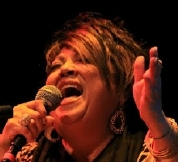
CP: Well, I don’t know if she’s gonna do this one, I’m just speaking in general about the band. I’m not sure she’s gonna be at this one [JM: no, she will not.] I think it may just be Carl. Because she’s a traveling lady and she’s doing a lot of stuff with the promo for 20 Feet From Stardom.
JM: Hopefully that’ll help get her more visibility, because she deserves it, definitely.
CP: Well, you know, she’s pretty visible in the Gospel world, and that sort of thing. She does, or was doing a lot of that and has been for years. She’s another one from that era of all of us being friends back in the day [laughs]. We don’t want to date ourselves too badly… [laughs].
JM: Right! So, I do want to ask you a little bit about your time in Chicago, but first I want to ask about when you played with Herb Alpert. I know you were on his hit song “Rise.” Can you tell me a bit about what it was like recording with him?
CP: Well, he was a really, really, really nice guy. Pretty much let everyone do what they wanted, and if he had an idea he would bring it up. But they were really laid back sessions compared to some that I was doing back then that were very intense. He’s just a really wonderful man.
The producers that were producing that record, and I believe Beyond which is the next one, were friends of mine also from that same era. I would play with Andy Armer who was one of the producers. We played in Venice, you know, and all those little clubs down there for 25 bucks [laughs]. But Herb Alpert is just a great guy. He was so easy. He spent a lot of time sleeping on the couch.
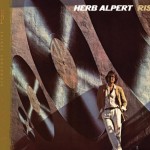
But he’s very knowledgeable, and he’s a really good trumpet player. I thought he just played those melody lines but he did some solos on Rise and Beyond that were pretty cool, so I gained more respect of his solo ability. Most people associate him with the Tijuana Brass.
JM: I understand that the song Rise was actually released a bit slowed down from how it actually was recorded. Were you a little surprised to hear the final product?
CP: If I’m not mistaken, back then they did two different versions. One was an extended play, and one was the radio version, which was the one you’re talking about, because it was a pretty lengthy jam. When we recorded it, they did a certain amount of editing for the radio version, but that was pretty common in that era, in the late 70’s, where bands would do their version which was much longer and there was also the radio version so they could get it played on the 3 minute mark. So, I wasn’t surprised that they did that with Rise because that’s how it became a hit. People aren’t exactly going to sit around for a 6 minute song [both laugh]. Our attention span sometimes isn’t that long. But I got to meet a lot of great session players. That helped me, get into that kind of clique a little bit at that time. It was an important part of the career.
JM: How did you get the gig playing with Chicago?
CP: I had started to do lots of sessions for different people and things like that, and I actually started working for Danny Seraphine, the drummer, for his projects, not necessarily Chicago. He was a producer also, and he had a band called Dakota that he worked with a while back. They’re still together.
And Chicago didn’t really have a guitar player for the 14th album. Most people call it the Thumbprint album. So they just hired me pretty much as a session guy, as a sideman, to play guitar and fill that spot, and that’s basically how I got the gig. They just said, “Hey, you wanna come on the road with us?” and I said, “Why Not?” So I spent the next five years touring with them. And that’s not an experience everyone gets to do, so I was pretty lucky on that aspect [laughs].
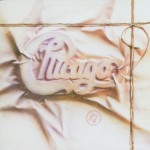
JM: Yeah, definitely. So, I know you were with them for the Chicago 17 album, and that was huge. Everybody had a copy of that. What are your reflections on that particular album?
CP: Well, you know, it’s a great album. If I were to be a stickler about it I would say it’s not necessarily a “Chicago album”. You know, David Foster came in, and he produced 16 and 17, and it became kind of of a ballady era with “Hard to Say I’m Sorry”, “You’re the Inspiration”. You know, the Chicago that we all grew up with was a pretty slammin’ band. But, still I can’t… I mean, it wasn’t my cup of tea necessarily, some of those songs, because I loved playing the older stuff, but Foster is a definitely brilliant producer. 16 started them back on the road to recovery. The tours of 16 and 17, we were playing forums and Madison Square Garden. It was pretty amazing [laughs].
But those two albums, with the hits that came from them, were really instrumental in bringing them back. Because when I joined the band, or, not joined the band but started playing on their record, everybody was OK, but they weren’t what they were. You know, they didn’t have any hits, they hadn’t had any hits in a while. So those two albums really started them up again, which is a nice thing to see.
JM: So, I’m guessing you read Danny’s book. [Street Player by former Chicago drummer Danny Seraphine.]
CP: No, I haven’t…
JM: You haven’t? OK… [laughs] I was curious if you thought that he accurately portrayed what was going on, but if you haven’t read it, then who knows?
CP: Yeah, I know a lot of people who have read it and from what I heard it seems like it’s pretty accurate. I mean, there are many, many different opinions of what was going on in some of the eras of Chicago. You know, who was in charge, and who was mad at who, and that sort of thing, but [laughs] that’s typical band stuff. It’ s like if you’ve got a family, a sort of a marriage, and everybody can’t agree on everything.
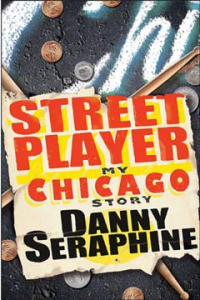
JM: I read it, and Danny is hard on himself as well, so that made me think that probably it must be pretty accurate, or at least that he didn’t whitewash it.
CP: Yeah. You know, Danny got pretty involved or wanted to be more involved in the business aspect, it seemed to me, at the time and so, I dunno, his playing suffered a little bit. Because he was concentrating more on doing some business for the band than he was on actual playing. But now, gosh, I hear stuff from the new CTA stuff and he’s just burning. He’s really good. And that whole band is. It’s like hearing the old band in a way, when Terry Kath was still alive.
JM: I’m told you were a student of Ted Greene, that you took lessons from him.
CP: I took maybe two or three months if I remember correctly, about every other week or something, and after those three months I had enough stuff. In fact I’m still working on it [both laugh]. I mean it’s just… wow. The man was a genius on guitar.
JM: Yeah. So what did you learn from him? What sticks out?
CP: Mostly about chords, and chord melody, because that definitely is his forte. But also, what I didn’t realize is that he’s also quite a good single note jazz player.
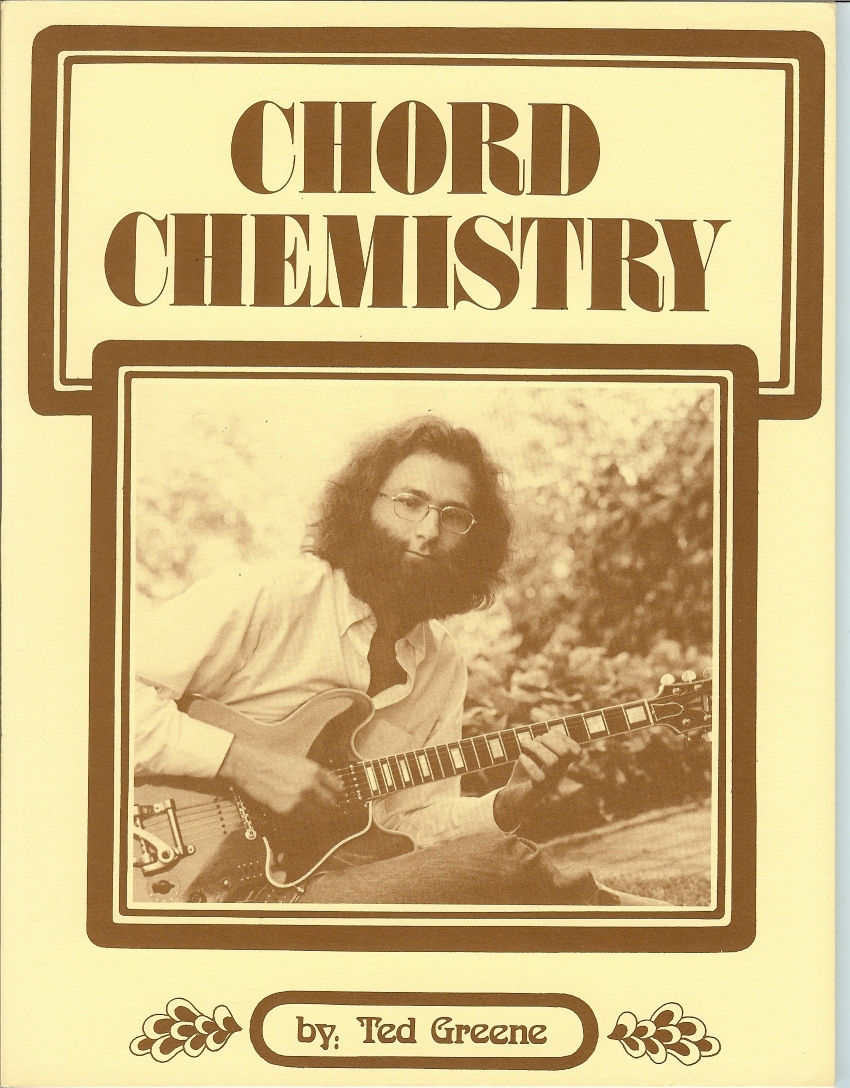
So I always had his books, or at least the first one, Chord Chemistry, and I still do. I think there’s three of them that he put out. I think the main thing that I learned from him was how to make chords more interesting, and how to, even in writing, how to take one chord and throw it out and put in one that still works but sounds better. You know, he was really good at that sort of thing. And also just his humbleness. I mean for somebody to play that well and you sit there and he’s just going, “Yeah, I’m OK.” [laughs] Just an amazing guy.
But still to this day, I go to that website they have for him with all his lessons on it. I go there all the time and look things up and stuff. He’s still a teacher.
JM: What advice would you give to an aspiring musician?
CP: Well [laughs], boy thats a rough one nowadays because the business is so, so different. The basics are still: learn your instrument, learn how to read, be prepared for anything they might throw at you. But also be prepared for long haul, because when I grew up playing here in the Valley and doing gigs, there were a lot of gigs, there was enough for everybody. Now, it’s pretty tight. I feel bad for some of the up and coming musicians, you know, because they might be better of moving out of California. Because California, well, L.A. I should say, is just, music-wise, is not what it was, let’s put it that way.
But just like any other field of work, you have to be good and better than anybody else, or as far as your knowledge, you have to be able to play in all situations. Unless you’re a band, then that’s a different story, but as far as just like how I grew up, I’ve always been a side-man, so that meant I had to know how to play country and jazz and rock and folk and anything that came along. And the more versatile you are the more gigs you get.
But I do kind of feel bad for the players now cause there’s not as much work as there used to be, so it’s much much tighter. It’s harder to get into, that sort of thing. It’s a little different business nowadays.
JM: I hear that a lot, when I ask that question.
CP: Well, you know, another thing that’s ruined it – yeah, I guess ruined is a good word – is the digital download. That sort of thing has has ruined it for a lot of up-and-coming singer-songwriters because they can’t make any money at it. So it becomes very frustrating. You know, the companies are either not paying the royalties because of some loophole, or they’re paying one penny or half a penny. You know, it’s just crazy. And I’m sure you’re aware of that, Most people are aware of that now.
JM: So what are your plans, musical or otherwise, for the near future?
CP: Well, I guess you could call me semi-retired [laughs]. Only because I do probably most of my work and my writing, and everything right here in my little apartment with my computer. My main goal is to keep making enough money to keep going, by doing internet sessions, which I really enjoy because you can play with a lot of different people and on a lot of different levels. And I get to help them, too. I’m in a position where, if somebody calls up and says: “I’ve only got 15 dollars,” I’ll say, “OK, keep your 15 dollars, I’ll put some guitar on it.” So, I like that. I just like the benefits. It’s kind of a time to give back, I guess.
I don’t know if you know, but I’m a heart transplant patient also.
JM: OK. Wow.
CP: So that has kind of allowed me to, or forced me to relax a little bit, and not do as much work. So the internet has been good for me in that way, where I can work at home. I don’t do too many live gigs. Most of the live gigs I do now are special occasions and benefits for Eddie.
JM: Well, maybe that can be the hook for the article. You’re not doing many gigs, so this is one of the rare chances to see you [laughs].
CP: Yeah, I mean I don’t go out, and the reason for that is the same reason we were talking about earlier, with everything thats going on. Even gas prices now figure into it. If you’re doing a gig for $75 in Long Beach, you might as well not do it, cause at $4, $5 dollars a gallon, it’s just not worth it. It’s never been like that. I never even figured any of that into the equation. Now, you almost have to. It’s a different business, but it’s good to see that kids are still playing and doing that. There’s a lot of great guitar players out there.
JM: Thank you for talking to me. I was born in 1970, so I was of age when those Chicago albums that you played on were coming out, and I was listening to that stuff on the radio. So it’s cool for me to get to talk to you here.
CP: That’s cool. I’m glad if in any way I can help, whatever it might be. And this might be one of them, so hopefully there will be a lot of people. I mean., needless to say, the whole concept of the fracking thing is a little scary, to say the least, so hopefully we’ll get some notice. Looks like it’s gonna be fun though!
JM: Yeah, it looks great, a great line-up! I’m looking forward to it!


Discussion
No comments for “Interview: Chris Pinnick”